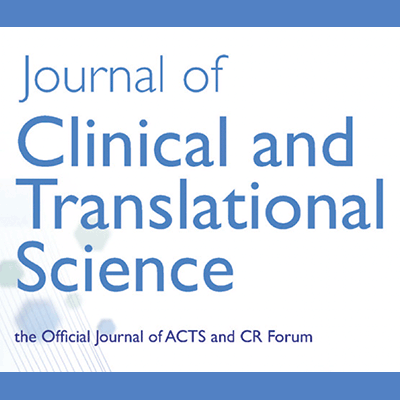UK’s SPARK Program Highlighted in Journal of Clinical and Translational Science

LEXINGTON, Ky. (March 28, 2025) – A paper about UK’s Students Participating as Ambassadors for Research in Kentucky (SPARK) program, authored by leaders and participants, has been published in the Journal of Clinical and Translational Science.
Whereas most existing research training programs are brief, focus on laboratory research, or are limited to graduate students and junior faculty, SPARK is designed for undergraduates and delivers an intensive, 16-month training focused on behavioral and population health science. Participants complete didactic coursework on health outcomes, study design, proposal development, data analysis, and ethics. Multiple mentors guide them in creating original research projects for which they serve as Principal Investigator. Participants receive not only funding for research expenses but also a stipend to compensate them for research work over the summer—which is important since many students cannot afford to miss a summer of wages. SPARK was originally open only to students from the University of Kentucky but now includes undergrads from Kentucky State University.
According to the paper in JCTS, data from the first three SPARK cohorts suggest the program is pivotal in preparing students for graduate studies and research careers in behavioral and population health sciences, providing strong support for further investments in similar undergraduate research training models. The paper also provides an overview of the program’s eligibility, recruitment, selection process, components, assessment, outcomes, and challenges.
Quantitative and qualitative evaluation of SPARK found that all three cohorts found the SPARK training series very useful, with the one-on-one research meetings, Health Equity 101, and Research 101 sessions receiving particularly positive ratings. All students agreed that the educational training improved their understanding of health equity and that their relationship with their research mentors increased their confidence to challenge themselves to achieve new goals and explore alternatives in their research.
Ariel Arthur, program coordinator for SPARK and first author on the paper, says that publishing a paper about the novel program was important because it could serve as a model for other institutions around the country.
“There are few intensive programs like SPARK that focus on population health and behavioral health training for undergrads beyond a summer component. The robust mentorship structure is also a unique and critical component of our program, ,” she said.
For Alexis James Shugars, who participated in SPARK while an undergraduate at UK and co-authored the paper in JCTS, the SPARK program “majorly influenced” her educational and professional path. While she had previous research experience in a lab, SPARK provided her with a strong foundation in community-engaged, translational research and increased her confidence in own skillset. She’s now finishing a master’s degree in genetic counseling at Massachusetts General Hospital.
“The reason I was so drawn to genetic counseling is because it combined the skills I learned in SPARK with all the other bench research work I had done. I loved doing bench work and community-engaged research, which led me down the path of trying to figure out how can I still have the psychosocial aspect while also staying in the lab,” she said.
She was eager to co-author a paper on SPARK because “publishing is really the easiest way to share knowledge in the science community and academic space.”
“When you put so much effort into a study or a program and you see the great benefits of it and you see how all your work has come to fruition, it almost feels like a disservice to not share it with the greater community and not influence other schools and professionals,” James Shugars said. “It was really a very pivotal moment in my life, being a part of SPARK, and I hope that other students across the country can also have that kind experience.”
Students Participating as Ambassadors for Research in Kentucky (SPARK) is a dynamic collaboration between the Center for Health, Engagement, and Transformation (CHET), the Center for Clinical and Translational Science (CCTS), Aetna Better Health of Kentucky, and other university and philanthropic partners.
The project described was supported by the NIH National Center for Advancing Translational Sciences through grant number UL1TR001998. The content is solely the responsibility of the authors and does not necessarily represent the official views of the NIH.
Media Contact: Mallory Profeta, mallory.profeta@uky.edu